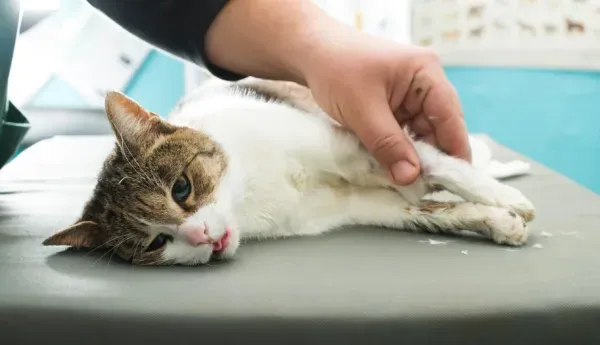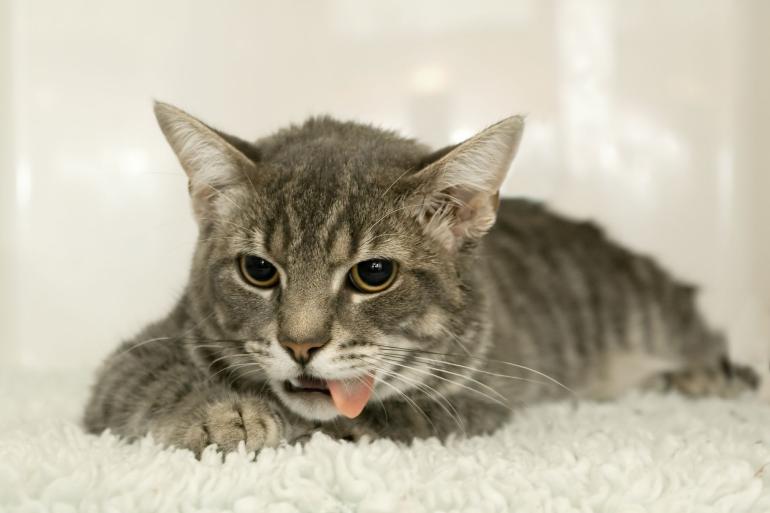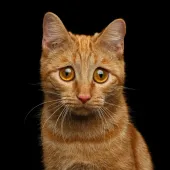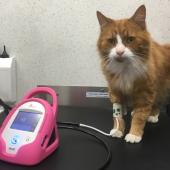Understanding Cat Fainting (syncope): Causes, Symptoms, and Care

One concerning phenomenon that can puzzle and worry cat owners is cat fainting, also known as syncope. Unlike in humans, fainting in cats is rare but can be indicative of underlying health problems. Understanding the causes, symptoms, and appropriate care for cat fainting is essential for responsible pet ownership.
Fainting (syncope)
Cats can faint, also called syncope, though it happens less frequently than in people. Similar to people, when a cat faints, it usually recovers on its own in a matter of moments without medical assistance. It loses consciousness for a brief period of time and falls to the ground immobile. The causes and therapies of fainting and fitting are substantially different, making the distinction between the two illnesses crucial, albeit frequently challenging. In addition, periods of weakness or collapse may be brought on by certain other medical conditions (such as low blood glucose or disorders affecting the muscles and nerves). For more guidance, you should get in touch with your veterinarian right once if your cat collapses for any reason.

What is fainting?
When there is not enough blood flow to the brain, fainting happens. Blood must be pumped uphill while a person is standing since their head is higher than their heart. This makes any circulation issues more noticeable. Cats are less likely than people to faint because their heads are nearly in line with their hearts.
Your cat will fall to the ground, usually on its side, during a fainting episode. It may exhibit uncontrollably twitching muscles and lose control of its bowels or bladder; these characteristics are also present during a seizure, which is why some owners confuse an episode of fainting for one. The tongue and gums may appear significantly whiter than usual for your cat during a faint, and the entire body may appear limp and floppy—features that are not usually present during a seizure.

Why does my cat faint?
There are a number of different causes of reduced blood supply to the brain. Generally, reduced blood supply to the brain is caused by episodes of low blood pressure. This can be caused by the heart beating at an abnormally rapid or slow heart rate, or even stopping completely for a few seconds. Low blood pressure can also result from very weak contractions of the heart or from narrowing or excessive leakage of the heart valves. Many of the medical conditions that can cause fainting are more prevalent in older cats. In younger animals fainting is occasionally associated with congenital heart disease. However, it is important to stress that some animals, can faint at any age in the absence of underlying heart disease. This often happens following excitement or a specific set of circumstances. In cats the most common cause of fainting is cardiomyopathy (heart muscle disease).
There are several conditions or diseases that might cause fainting to occur as a symptom:
- Cardiovascular illness is the most frequent reason why cats faint. When blood is not correctly pumped into the body, heart disease results. Cats with heart illness may have pale gums, tachycardia (rapid heartbeat), coughing, and pulmonary edema. These may have an impact on the body's blood circulation, and they may also occasionally result in symptoms like collapsing.
- Feline leukemia: Viruses can cause some types of diseases, including leukemia. It spreads easily among cats and is highly contagious. An injured cat needs to be treated right away and will probably need care for the rest of their lives. Fever, exhaustion, and appetite loss are a few of the illness's symptoms. This may cause overall weakness and maybe fainting. Feline leukemia has the potential to be lethal if left untreated.
- Medication side effects: while all medications have the potential to have adverse effects, not every patient will experience them. Consult your veterinarian right away if your cat has been prescribed medication and starts to lose consciousness after taking it. Syncope could be the result of a negative drug interaction or a side effect of the medication.
- Pneumonia is a lung condition with numerous underlying causes. These include rapid temperature changes, blockages that impede airways, and feline calicivirus. Lethargy, difficulty swallowing, and difficulty breathing are some of the symptoms in addition to fainting. Passing out might result from the lungs' incapacity to deliver oxygen to the body.
- Anemia: When a cat's blood has significantly less red blood cells than normal, it is said to have anemia. The blood's oxygen transport system is comprised of red blood cells. Fatigue and a decrease in appetite are two effects of this oxygen shortage. Because the brain receives less oxygen when there are insufficient red blood cells, fainting is far more likely to occur.
- Poisoning: Consuming poisonous materials might cause cats to pass out. Cats can become poisoned when they inadvertently consume harmful chemicals. These could be insecticides, pharmaceuticals for humans, household cleansers, poisonous plants, or even food that is ordinarily fit for human consumption. Excessive salivation, dilated pupils, tachycardia, sneezing, diarrhea, and vomiting are some of the symptoms. It is typical for a cat to pass out after vomiting when suffering from poisoning.
How will my vet know what is wrong with my cat?
Initially, your veterinarian will check to make sure your pet is indeed fainting and not having a seizure. Your veterinarian will first want to know about the incidents, including the cat's activity level and the time they occur. The first time your pet faints, it can be rather terrifying, but you should attempt to remain composed and gather as much information as you can to give your veterinarian. Time your cat's unconscious period (it usually seems to last much longer than it does) and note what your cat was doing prior to and right after the incident. Most animals are perfectly normal in between episodes of fainting, therefore your veterinarian might not be able to find anything on a clinical examination. The veterinarian may benefit if you can record one of the events on camera (with your smartphone, for instance).
It is usually not possible for your veterinarian to diagnose your cat's condition simply by looking at them because there are so many various reasons why cats faint. An ECG recording—an electrical recording of the heartbeat—along with an ultrasound and occasionally x-rays of the heart are usually necessary for cardiac testing. Blood testing will probably also be necessary. Depending on how frequently your pet faints, tests may last for weeks or even months. In certain situations, your veterinarian might set up a cardiac monitor for your pet to wear at home. It is possible that nothing abnormal will ever come up on the testing, indicating that there is little chance that a significant medical condition or cardiac issue was the cause of the fainting.
Is there any treatment for fainting episodes?
The underlying reason of fainting determines the course of treatment. There may be no cure in certain situations, and cats may experience sporadic fainting episodes for the rest of their lives. It might be able to predict when attacks are likely to happen (for example, a cat may always attack when it gets very excited), and then it would be able to steer clear of situations that could set off episodes.
Certain disorders may require surgery (such as the placement of a pacemaker) to end the issue, while other cases may be treated with drugs that will help minimize the problem.
However, the good news is that many fainting episodes are not linked to serious underlying disease and in these cats the frequency of episodes can often be reduced by careful management. When they do occur the episodes last less than a minute with a rapid full recovery to normal behaviour almost immediately. The biggest concern is to rule out any serious underlying disease that may be a threat to your pet and for your vet to be able to recommend the best treatment in individual cases.
If you have any concerns about your cat contact your own vet for further advice.
In conclusion, while cat fainting is a concerning and potentially serious issue, swift action and proper veterinary care can help manage and treat the underlying causes. By staying observant, understanding the symptoms, and seeking timely medical attention, cat owners can ensure their feline companions live happy, healthy lives, free from the worry of fainting episodes.




